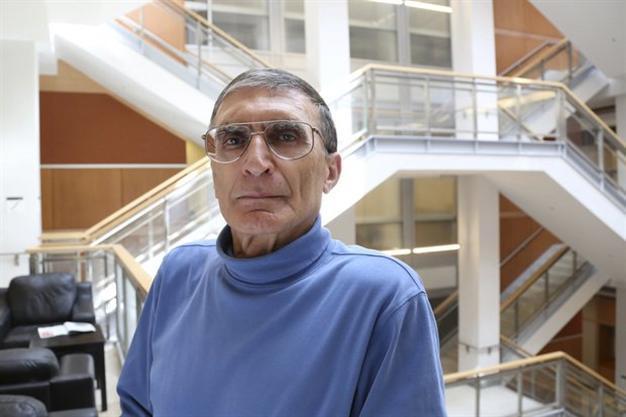Turkish-American scientist wins Nobel Prize
STOCKHOLM

REUTERS photo
A Turkish-American DNA scientist is among the three names to win this year’s Nobel Prize in chemistry, the award-giving body announced on Oct. 7.Aziz Sancar, Sweden’s Tomas Lindahl, and the U.S.-based Paul Modrich won the prize for work on mapping how cells repair damaged DNA.
Their work has provided fundamental knowledge of how a living cell functions and is, for instance, used for the development of new cancer treatments,” the Royal Swedish Academy of Sciences said in a statement awarding the 8 million Swedish crowns ($969,000).
“I just got a call half an hour ago. My wife took it and woke me up. I was not expecting it at all. I was very surprised,” Sancar told Adam Smith, the chief scientific officer at Nobel Media in a phone interview.
“[Turkish author] Orhan Pamuk got it in literature a number of years ago,” Sancar said, noting that he was the first Turkish-born scientist to receive the award.
“I am sure there will be [celebrations in Turkey]. They have been asking me over the years and I was tired of hearing, ‘When are you going to get the Nobel prize?’ so I am glad for my country as well,” said Sancar.
“I am also proud for my family and for my native country and for my adopted country [of the United States] and especially Turkey; it’s quite important,” Sancar said.
Sancar was born in Savur district of the southeastern province of Mardin in 1946. The child of “parents who were illiterate but who valued education,” Sancar studied medicine at Istanbul University in 1963 and moved to the United States after graduation, completing his Ph.D. on the photoreactivating enzyme of E. coli in 1977 in the laboratory of Dr. C. Stan Rupert.
The author of around 300 scientific papers, Sancar has been working at North Carolina University since 1997. Sancar, who was elected to the National Academy of Sciences in 2005 and the Turkish Academy of Sciences the following year, also the received Vehbi Koç Award in 2007.
The scientist is also a relative of Mithat Sancar, a Peoples’ Democratic Party (HDP) Mardin deputy.
“He has been a very competent scientist from the beginning. He is a scientist who is world-renowned in science and led very competent studies before receiving this prize. I am also following his studies. His success has been crowned with this prize. It is a great honor for me, our family, as well as our country,” the deputy told daily Hürriyet.
Sancar, Lindahl and Modrich won the prize for “mechanistic studies of DNA repair,” Reuters reported. Their work mapped how cells repair deoxyribonucleic acid (DNA) to prevent damaging errors from appearing in genetic information.
In many forms of cancer, one or more of these repair systems is damaged.
Thousands of alterations to a cell’s genome occur every day due to spontaneous changes and damage by radiation, free radicals and carcinogenic substances – yet DNA remains astonishingly intact.
To keep genetic materials from disintegrating, a range of molecular systems monitor and repair DNA, in processes that the three award-winning scientists helped map out.
Lindahl, who works at Britain’s Francis Crick Institute and Clare Hall Laboratory, said he was surprised by the news, although he knew he had been considered for a prize over the years, along with “hundreds of other people.”
He said DNA repair played a vital role in human health and the work by Nobel trio over the years was important in pointing the way to better disease treatments, especially for cancer.
“We have to understand the mechanisms, so we can selectively provide good therapy,” he told the Nobel news conference by telephone from London. “We can’t avoid DNA damage. We live in a world where we get exposed to DNA damaging agents all the time.”
Modrich, the third winner, is a researcher at the Howard Hughes Medical Institute and Duke University School of Medicine in the United States.
Chemistry was the third of this year’s Nobel prizes. The prize is named after dynamite inventor Alfred Nobel and has been awarded since 1901 for achievements in science, literature and peace in accordance with his will.
The prize for medicine was awarded on Oct. 7 for work in developing drugs to fight parasitic diseases, while the physics prize went to researchers investigating ghostly sub-atomic particles known as neutrinos.
















